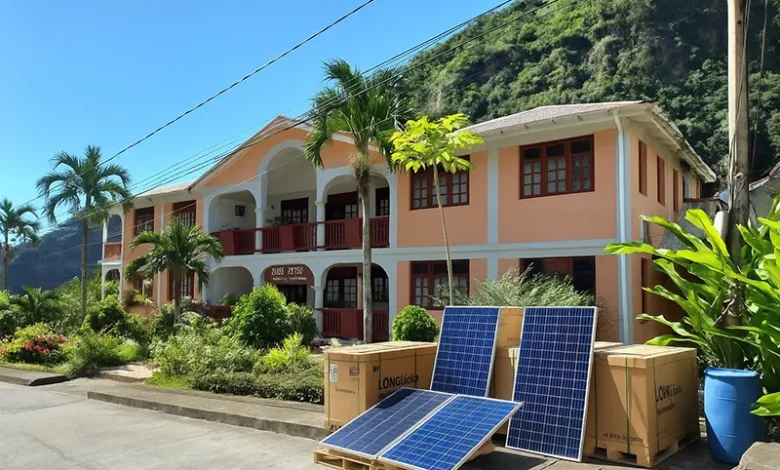Hotels Aid Act

The Hotels Aid Act, formally Chapter 85:04 of the Revised Laws of Dominica, was established to foster growth in the tourism industry by alleviating certain tax obligations for approved hotel and resort projects. It aims to reduce the cost of development and encourage investors to upscale infrastructure that supports national tourism objectives. By relieving import duties and tax obligations, the Act makes large-scale tourism projects more financially viable and competitive.
Under the Act, capital goods imported for the construction, extension, or equipping of hotels and resorts are eligible for customs duty and Value Added Tax relief. The measure has been instrumental in raising capital investment, especially in greenfield developments and restoration efforts in key tourism sites like Douglas Bay and Soufrière. It has also played a crucial role in enabling eco-tourism facilities to import solar, wastewater, and water-heating systems without prohibitive costs.
Scope of Incentives and Legal Framework
The Hotels Aid Act works in tandem with the Income Tax Act (Chapter 67:01) and the Fiscal Incentives Act (Chapter 84:51). Together, these laws create a coherent legislative framework for tourism-related investment. The Act allows up to a 20-year tax holiday on hotel and resort income for qualifying projects. While the tax holiday applies under the Income Tax Act, the Hotels Aid Act grants duty relief on imports for approved developments.
To benefit from the Act, projects must receive formal approval from Cabinet, typically initiated through the Invest Dominica Authority. Once approved, an enterprise receives eligibility for:
- Import duty exemption on building materials, machinery, furniture, and operational equipment
- VAT waivers for imports used during project construction and furnishing
- Waiver of customs duties on vehicles designated for operational or guest use
- Permission for foreign-operated projects to repatriate profits without additional withholding taxes
- Optional exemption from capital gains taxes on disposal of eligible property
These measures reduce upfront capital costs and improve project feasibility, particularly in a market sensitive to construction and equipment expenses.
Administration and Oversight
The Invest Dominica Authority (IDA) manages applications for Hotels Aid incentives. Applicants must submit project proposals with investment budgets, environmental impact statements, projected employment figures, and hotel star classification plans. The IDA reviews applications and makes recommendations to Cabinet, which holds final approval power. Upon approval, the IDA issues certificates detailing the scope and duration of incentives.
The Customs and Excise Division enforces duty exemptions by cross-referencing imports against approved incentive certificates. Projects are subject to inspections and audits to ensure the import privileges are not misused. Failure to comply may result in the reversal of duty relief, imposition of penalties, or withdrawal of the incentive.
Impact, Challenges and Future Reforms
Since its introduction, the Hotels Aid Act has supported significant investments in the tourism sector. Notable development projects benefiting from the Act include high-end resorts and eco-lodges that employ hundreds of locals during construction and operation phases. The increased capital expenditure has enhanced room capacity, elevated service standards, and stimulated allied sectors like transportation, agriculture, and recreation.
However, the incentive system faces critiques related to:
- Revenue loss: Duty and VAT exemptions reduce government income, and measuring their return on investment remains complex.
- Equity: Large developments receive significant benefits, while smaller, local accommodations may not qualify.
- Transparency: Details of approved projects are not always publicly accessible, limiting civil society oversight.
Efforts to improve the scheme include proposals for sunset clauses, annual reviews, impact assessments, and public disclosure of incentive certificates. To balance lost revenue with social dividends, some projects are now required to meet local employment targets, environmental standards, or community investment thresholds as part of the incentive conditions.
Future Directions and Policy Vision
As Dominica advances its tourism and climate resilience agenda, the Hotels Aid Act may evolve to meet 21st-century priorities. Anticipated reforms include:
- Linking incentives to climate-smart features such as green building certification and renewable power usage
- Introducing a tiered structure where benefits scale with job creation, domestic procurement, and environmental compliance
- Adding secondary incentives for upscale renovations of existing hotels in designated tourism redevelopment zones
- Exploring digital applications for approvals and monitoring, to streamline implementation and reduce compliance costs
By refining scope and transparency, the Act can continue driving capital investment in tourism, while ensuring that incentives serve national welfare and economic inclusion targets.
List of Key Benefits Provided by the Hotels Aid Act
- Customs duty and VAT exemptions on importation of qualifying materials and equipment
- Tax holidays of up to 20 years under combined legislation
- Permission for foreign investment repatriation without withholding tax
- Eligibility for capital gains exemptions on disposal of developed hotel properties




